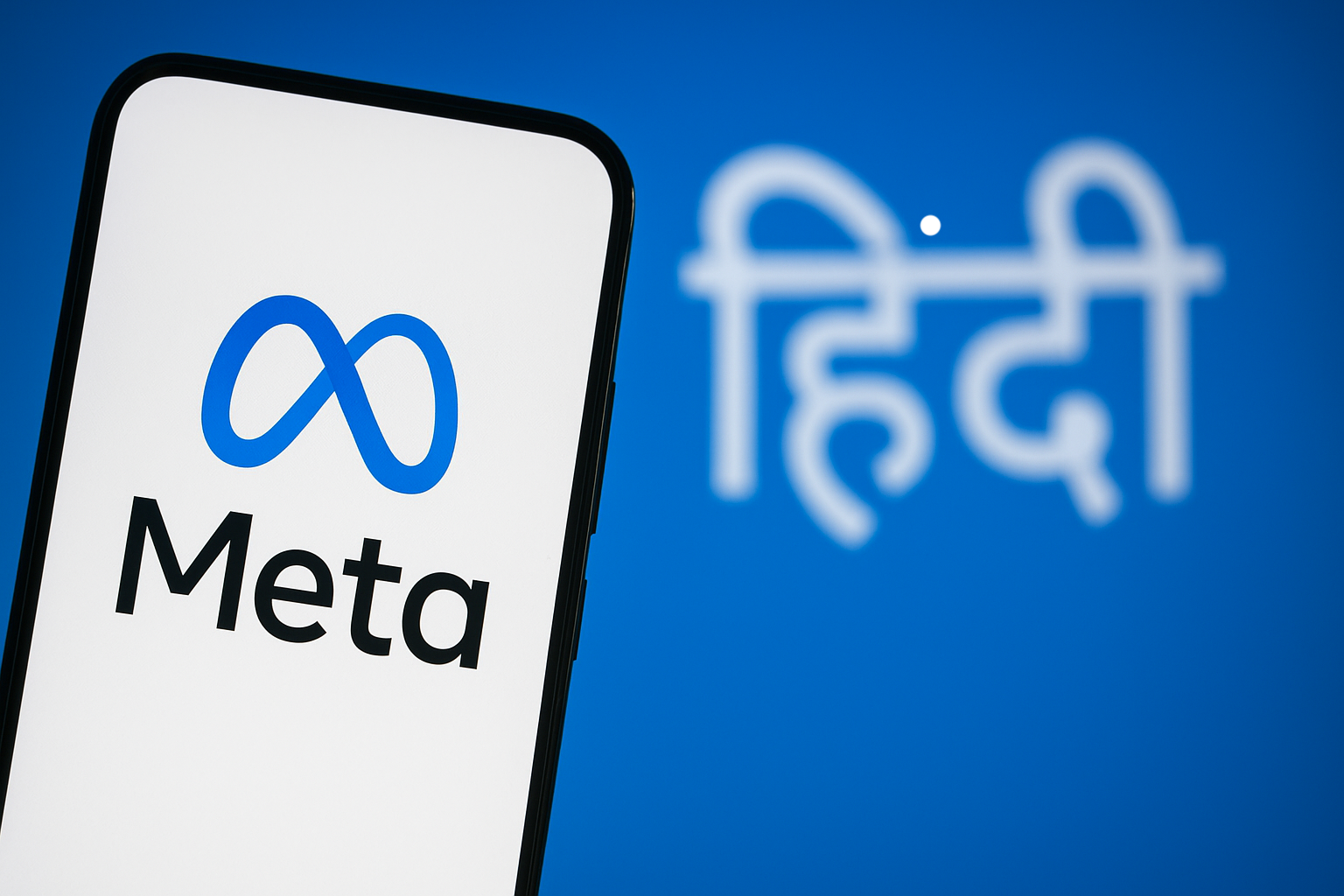
Meta’s Fresh AI Experiment in India
Meta is making another big move in India. The company is paying up to $55 an hour to U.S.-based contractors who can build AI chatbots in Hindi and other local languages. This translates to nearly ₹4,850 per hour, a sum that highlights the seriousness of Meta’s plan.
The contractors will design chatbot personalities for WhatsApp, Instagram, and Messenger. These bots will not just speak Hindi, but also mirror cultural references and regional tone. The company believes these local voices will make its apps feel more personal for users.
From Celebrity Bots to AI Studio
This is not Meta’s first attempt at chatbot personalities. Earlier, the company experimented with celebrity-inspired bots that never took off. In 2024, Meta launched AI Studio, a platform that lets developers and creators design custom chatbots.
The Hindi and regional AI initiative looks like the next step in this journey. Contractors are being hired through staffing firms like Crystal Equation and Aquent Talent. Applicants must be fluent in languages like Hindi, Spanish, Portuguese, or Indonesian. They also need six years of experience in storytelling, character design, and AI content workflows.
Why India is Central to Meta’s Plan
India is Meta’s largest market for WhatsApp and Facebook. Localized AI experiences could help the company strengthen its hold in a region where competitors are also investing heavily. Mark Zuckerberg sees AI chatbots not only as assistants but as companions that can become part of daily digital lives.
The strategy goes beyond translation. By adding cultural cues and relatable voices, Meta hopes to create bots that act less like tools and more like human-like companions.
Privacy Fears Resurface
However, there is a critical concern. Meta’s past AI chatbot trials raised serious questions about privacy, misinformation, and bias. Some versions were accused of producing inappropriate content. Reports also suggested that development involved exposure to user-generated material, including private messages and images.
These issues led to regulatory scrutiny. Lawmakers questioned Meta’s handling of sensitive user data and its overall approach to AI ethics. The risk of personal conversations being used in training remains a live issue.
Meta’s Long History of Consent Breaches
The concern does not end with AI chatbots. Meta, since its early days under Mark Zuckerberg, has often faced allegations of breaching user consent. From the Cambridge Analytica scandal to repeated privacy fines in Europe, the company’s record remains troubling.
Even as Meta promotes AI chatbots as digital companions, the trust gap with users continues to widen. The promise of cultural connection could easily be overshadowed if privacy safeguards fail again.
Human Rights at the Center
This latest hiring push highlights a bigger question: Can Meta build localized AI without risking human rights? Chatbots designed to engage users deeply could blur the line between helpful digital assistance and intrusive surveillance. Consent becomes even more complex in India, where data protection rules are still evolving. Without strict safeguards, there is a danger that personal data may be mishandled or misused.
The Real Test for Meta
For Meta, the real challenge is not just technical. It is ethical. If the company wants its AI push to succeed, it must prove that it values consent and privacy. Otherwise, history may repeat itself, and the debate around human rights will return stronger than ever.
Meta’s investment in Hindi and local language chatbots shows the importance of India as a test market. But the success of this initiative depends on whether it avoids the same pitfalls that have followed the company for years.
In the end, Meta is not only building chatbots. It is shaping how digital conversations will unfold in regional languages. The question remains: will it also reshape the boundaries of consent?
